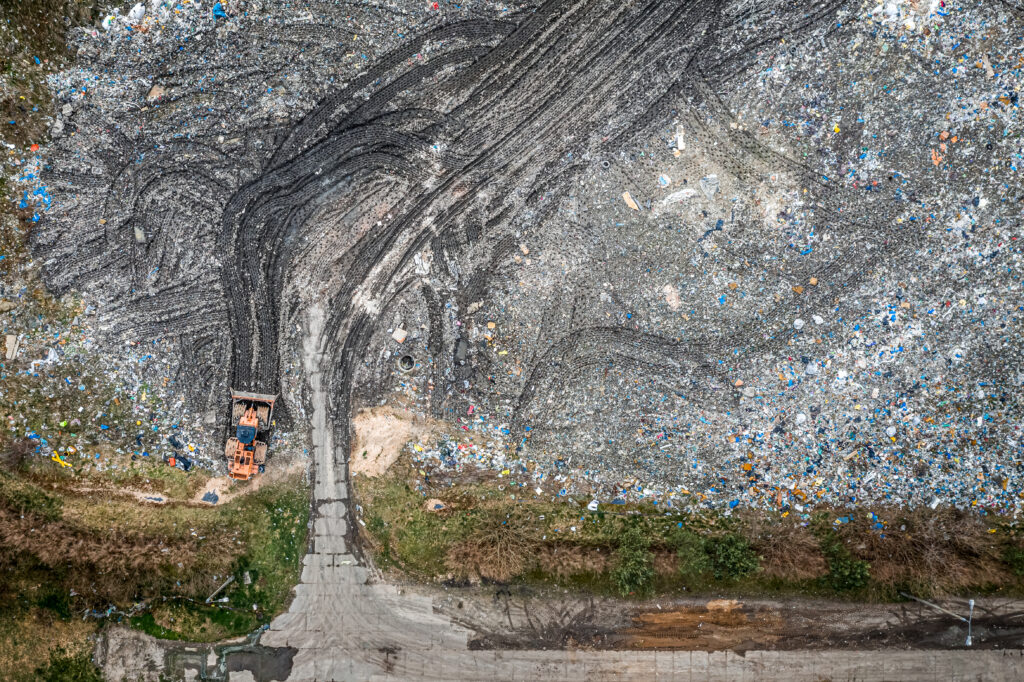The Challenge of Landfill Leachate Treatment
Landfill leachate is a complex and highly variable wastewater stream, often containing a mix of heavy metals, organic pollutants, salts, and persistent contaminants like per- and polyfluoroalkyl substances (PFAS). As environmental regulations tighten and public concern over landfill contamination grows, operators need reliable, future-proof solutions for leachate treatment. Advanced reverse osmosis (RO) membranes are emerging as the leading technology for comprehensive contaminant removal, capable of meeting even the most stringent water quality standards.

The Strengths of RO in Landfill Leachate Treatment
RO stands apart from other treatment methods due to its ability to provide broad-spectrum contaminant removal in a compact footprint. Here’s why RO is a powerful solution:
- Compact Systems for Large Landfills – RO systems offer a relatively small footprint compared to alternative treatment options, making them ideal for landfills with space constraints.
- Broad Contaminant Removal – Unlike adsorption technologies (e.g. activated carbon, ion exchange resin) or alternative concentration technologies (e.g. foam fractionation) that target specific contaminants, RO separates out both organic and inorganic pollutants alike, including:
- PFAS (long and short chain)
- While short-chain PFAS are particularly challenging for adsorption- and foam-based treatments due to their reduced hydrophobicity, RO efficiently removes both short- and long-chain PFAS.
- Organic Contaminants
- Including chemical oxygen demand (COD), biological oxygen demand (BOD), volatile fatty acids, and recalcitrant organics like humic and fulvic acids.
- Heavy Metals
- RO effectively removes metals such as chromium, copper, zinc, iron, lead, and nickel.
- RO effectively removes metals such as chromium, copper, zinc, iron, lead, and nickel.
- PFAS (long and short chain)
- No Competition Between Contaminants – Unlike adsorption technologies, which can suffer from contaminant breakthroughs due to the adsorption of high levels of competing organic or ionic components instead of the targeted contaminants, RO performance remains consistent in its removal of targeted and nontargeted contaminants even at trace levels.
The Role of RO in PFAS Management
PFAS contamination is a growing concern in landfill leachate. While various destruction technologies exist—such as plasma, UV, electrooxidation (EO), supercritical water oxidation (SCWO), and hydrothermal alkaline treatment (HALT)—these methods work best when PFAS are concentrated beforehand. RO serves as a critical pre-treatment step, concentrating PFAS for more efficient and economical destruction.
Addressing RO’s Challenges
While RO has significant advantages, it has historically come with operational challenges. However, recent advancements in membrane technology—particularly zwitterionic RO membranes—have addressed these issues, making RO a more reliable and efficient solution for landfill leachate treatment than ever before.
-
- Organic Fouling Mitigation – Historically, organic fouling has been a major drawback of RO, leading to frequent cleanings, increased energy use, and reduced efficiency. ZwitterCo’s zwitterionic RO membranes offer superior resistance to fouling, extending membrane life and reducing downtime.
-
- Energy and Pressure Requirements – RO requires higher energy consumption compared to alternative treatment options mainly due to its high pressure operation. This can be exacerbated by organic fouling which reduces the efficiency of the RO membrane, requiring higher pressures and more energy to achieve the same treatment capacity. Advancements in RO membrane technology that mitigate organic fouling, therefore, also reduce system energy consumption and operational costs.
-
- Pretreatment Considerations – In high total dissolved solids (TDS) or total suspended solids (TSS) environments, pretreatment such as antiscalant addition or suspended solids removal may be required. However, given the zwitterionic RO membrane’s resistance to organic fouling, less focus is needed on removing potential organic contaminants from the leachate prior to the RO system. Alternatively, for struggling existing treatment systems, conventional RO membranes can be directly replaced with ZwitterCo RO and prevent the need for additional pretreatment steps and extra capital expense.
Reasons to Choose RO for Landfill Leachate Treatment
As landfill leachate composition and regulation continues to evolve with industrial and consumer waste patterns, selecting an adaptable and effective treatment solution is critical. Advanced RO membranes stand out as an innovative solution that provide both immediate regulatory compliance and long-term operational benefits.
- Achieving Surface Water Quality Standards – RO-treated leachate meets the most stringent discharge regulations, significantly reducing environmental impact and liability. This high-quality treated water can meet or exceed surface water standards, enabling safer discharge and reuse options.
- Enabling Beneficial Reuse – High-quality RO permeate can be reused for applications such as on-site dust control, reducing freshwater dependency and overall operational costs.
- Future-Proofing Treatment Systems – As environmental policies evolve, selecting an advanced treatment like RO ensures compliance with emerging contaminant limits. The broad-spectrum removal of contaminants, including heavy metals, organics, and PFAS, provides a safeguard against regulatory uncertainty.
- Enhanced Cost Efficiency – With advanced zwitterionic RO membranes, operators experience less organic fouling, leading to fewer cleanings, lower chemical use, and reduced maintenance downtime. This translates to cost savings and allows staff to focus on other essential operations.
With its unmatched ability to remove a broad spectrum of contaminants, from heavy metals to persistent organics and PFAS, advanced RO membranes are the best choice for the future of landfill leachate treatment. Technological advancements, particularly in zwitterionic membranes like ZwitterCo’s, have mitigated previous operational challenges, making RO a more efficient and cost-effective option than ever before. By choosing advanced RO membranes, landfill operators can ensure regulatory compliance, improve sustainability, and future-proof their leachate treatment systems against evolving environmental standards.

